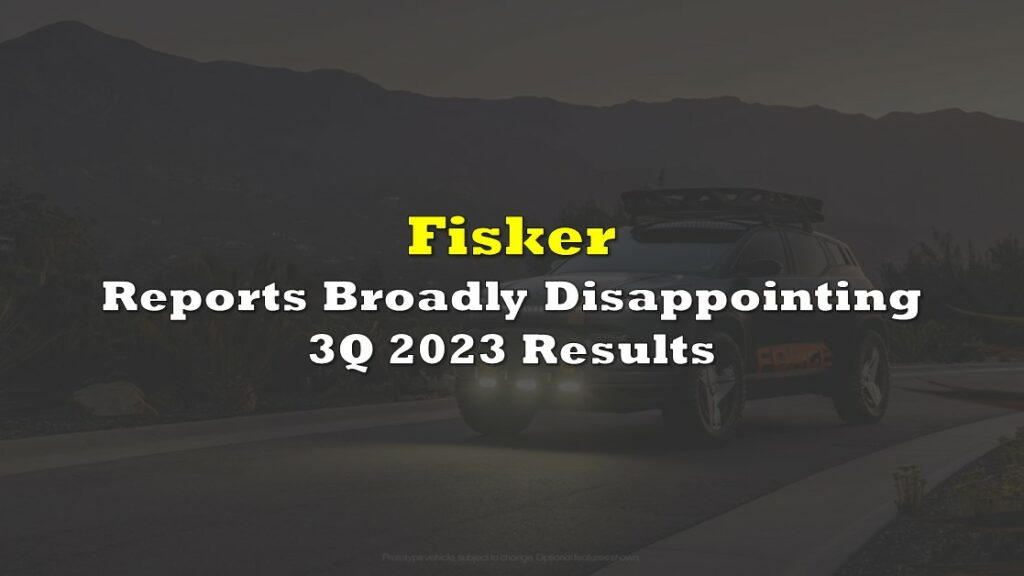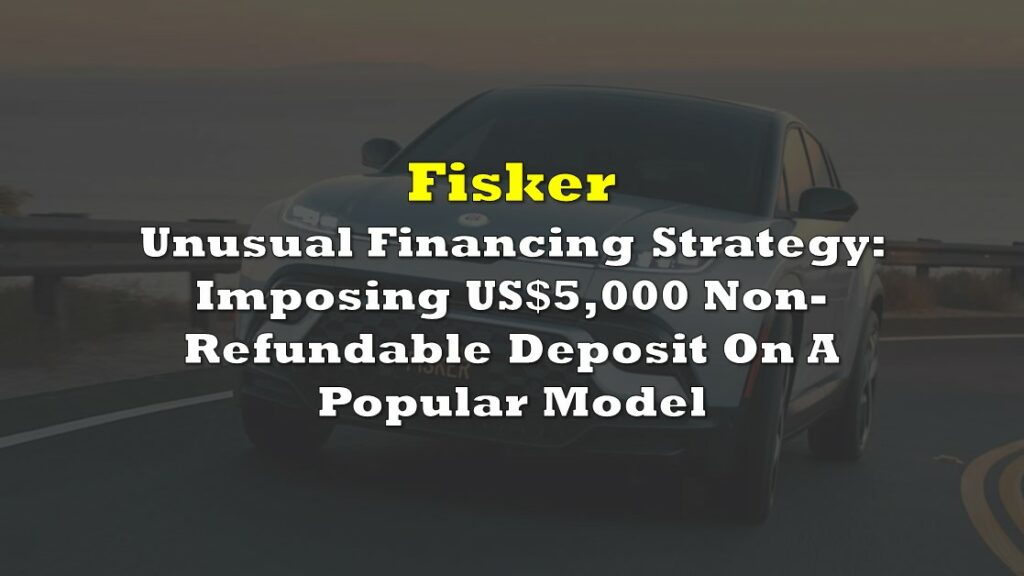Fisker (NYSE: FSR) has reported its first quarter with automotive sales revenue. The milestone follows the electric vehicle startup managing to produce 1,022 vehicles during the second quarter.
The company has indicated that the first vehicles delivered have achieved gross margins of 7.5%, and with early-stage investor vehicle deliveries excluded, margins were as high as 18.5%. Revenues totaled $0.8 million during the quarter.
Despite deliveries beginning, the company posted a loss from operations of $87.9 million, while the net loss amounted to $85.5 million, or $0.25 per share.
Net cash used during the quarter amounted to $128.1 million, dropping the firms cash position to $521.8 million as of the end of June and leading the company to conduct a $300 million convertible note offering in July.
Despite the positive news of deliveries beginning during the quarter, the company still failed to meet its targets. Fisker had previously indicated it expected to produce 1,400 to 1,700 vehicles during the second quarter.
The company also continued the trend of reducing production guidance for the year. Initially pegged at 42,400 units for the year at the end of 2022, Fisker cut that figure to 32,000 to 36,000 vehicles for 2023 after posting their first quarter results. Today, they again reduced production estimates to that of 20,000 to 23,000 units for the year.
July meanwhile saw the production of 1,009 Fisker Ocean One’s, indicating that a further production ramp is required to meet the reduced guidance. The company claims it had an assembly rate of 140 vehicles per day as of the end of July.
Expenditure guidance meanwhile has increased from the initially forecasted $535 to $610 million, to a range of $565 to $640 million. Gross margin guidance of between 8% to 12% for the full fiscal year however was maintained.
Fisker last traded at $6.35 on the NYSE.
Information for this briefing was found via Edgar and the sources mentioned. The author has no securities or affiliations related to the organizations discussed. Not a recommendation to buy or sell. Always do additional research and consult a professional before purchasing a security. The author holds no licenses.









